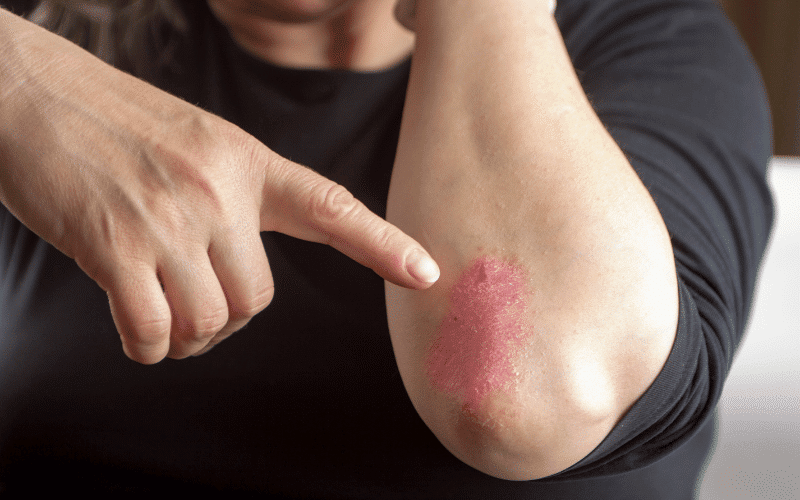8. Psoriasis – An Immune-Mediated Skin Disorder

Psoriasis is an immune-mediated skin disorder that causes the rapid overproduction of skin cells, leading to the formation of thick, scaly patches on the skin’s surface. These patches, known as plaques, are typically red, raised, and covered with a silvery-white scale. Psoriasis can affect any part of the body but is most commonly found on the elbows, knees, scalp, and lower back.
The exact cause of psoriasis is unknown, but it is thought to result from an overactive immune system that mistakenly attacks healthy skin cells. Genetic factors also play a role, as individuals with a family history of psoriasis are more likely to develop the condition. Triggers for psoriasis flare-ups can include stress, infections, certain medications, and skin injuries (such as cuts, scrapes, or sunburn).
There is no cure for psoriasis, but the condition can be managed through a combination of treatments that aim to reduce inflammation, slow the overproduction of skin cells, and relieve symptoms. Treatment options include topical corticosteroids, retinoids, and vitamin D analogs, as well as phototherapy (light therapy) and systemic medications, such as oral or injectable biologic drugs.
If you suspect that you have psoriasis, consult your healthcare provider for a proper diagnosis and appropriate treatment plan. In addition, consider joining a support group or seeking counseling to help cope with the emotional impact of the condition. (8)